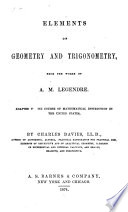 | Adrien Marie Legendre - Geometry - 1874 - 500 pages
...by p, we have, 10'' = mr ; whence, by the definition, xp = log mr (8.) That is, the logarithm of any power of a number is equal to the logarithm of the number multiplied by the exponent of the power. 8. Extracting the root, indicated by r, of both members of (4), we have, 10r = whence, by the definition,... | |
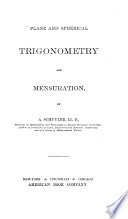 | Aaron Schuyler - Measurement - 1875 - 284 pages
...56.5 : x, to find x. Ans. 2014.96. INVOLUTION BY LOGARITHMS. 22. Proposition. The logarithm of any power of a number is equal to the logarithm of the number multiplied by the exponent of the power. Let (1) bz =и; then, by def., log n =x. (1)*=(2) 6"x=n!'; then, by def., log n'—px. . • . log... | |
 | Horatio Nelson Robinson - Algebra - 1875 - 430 pages
...division, — = a" ; n therefore, log. I — ) = x — z = log. 7W — log. n. 5. The logarithm of any power of a number is equal to the logarithm of the number multiplied by the exponent of the power. For, let m=cf; then z = log. m. By involution, m' = a" ; therefore, log. (mr) =rx = r log. m. 6. The... | |
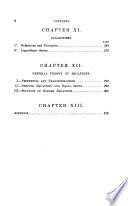 | William Guy Peck - Algebra - 1875 - 348 pages
...definition, a px _ m p . px = Log m'; . . . . (7) hence, the following principle: 3°. The logarithm of any power of a number is equal to the logarithm of the number multiplied by the exponent of the power. If we extract any root cf both members of (3), denoted by r, we have, a r = / \/m; whence, by definition,... | |
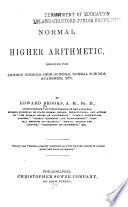 | Edward Brooks - Arithmetic - 1877 - 564 pages
...have, »•— f Hence, log ( — J = m — n, or, = log M — log N. PRIN. 6. — The logarithm of any power of a number is equal to the logarithm of the number multiplied by the exponent of the power. For, since if we raise both members to the nth power, we have, 10 mn _ M * f Hence, log M" = mn, or,... | |
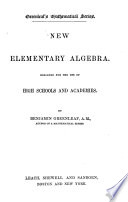 | Benjamin Greenleaf - 1879 - 346 pages
...n, and dividing, member by member, we have in which x — y = loga ( —V 360. The logarithm of any power of a number is equal to the logarithm of the number, multiplied by the exponent of the power. For, assume the equation, of =zm, and raising both members to the power p, we have <ff = mp, in which... | |
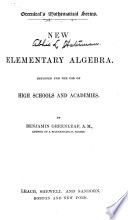 | Benjamin Greenleaf - Algebra - 1879 - 350 pages
...dividing, member by member, we have in which x — у = log„ í — V 3fiOi The logarithm of any power of a number is equal to the logarithm of the number, multiplied by the exponent of the power. For, assume the equation, ax = m, and raising both members to the power p, we have ax" = mf, in which... | |
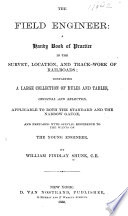 | William Findlay Shunk - Railroad engineering - 1880 - 362 pages
...quotient is equal to the logarithm of the dividend diminished by that of the divisor. The logarithm of any power of a number is equal to the logarithm of the number multiplied by the exponent of the power. The logarithm of any root of a number is equal to the logarithm of the number divided by the index... | |
 | Horatio Nelson Robinson - Trigonometry - 1880 - 228 pages
...exponent equal to 3x5; thus, (a i ) i = a 1 i, and, generally, (a") m =a nm . Hence, the logarithm of the power of a number is equal to the logarithm of the number multiplied by the exponent of the pmver. To extract the 5th root of the number a1, we write a, giving it an exponent equal to f; thus,... | |
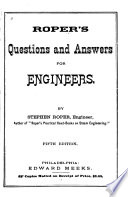 | Stephen Roper - Steam engineering - 1880 - 84 pages
...power of a given number may be found by logarithms as follows : The logarithm of any power of a given number is equal to the logarithm of the number multiplied by the exponent of the power. EXAMPLE.— To find the fifth power of 9, logarithm 9 = 0-954243X5 = 4-771215, and the number corresponding... | |
| |